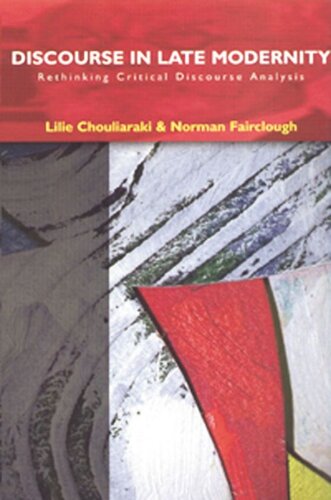

Most ebook files are in PDF format, so you can easily read them using various software such as Foxit Reader or directly on the Google Chrome browser.
Some ebook files are released by publishers in other formats such as .awz, .mobi, .epub, .fb2, etc. You may need to install specific software to read these formats on mobile/PC, such as Calibre.
Please read the tutorial at this link: https://ebookbell.com/faq
We offer FREE conversion to the popular formats you request; however, this may take some time. Therefore, right after payment, please email us, and we will try to provide the service as quickly as possible.
For some exceptional file formats or broken links (if any), please refrain from opening any disputes. Instead, email us first, and we will try to assist within a maximum of 6 hours.
EbookBell Team

5.0
98 reviewsDiscourse in Late Modernity sets out to show that critical discourse analysis is strongly positioned to address empirical research and theory-building across the social sciences, particularly research and theory on the semiotic/linguistic aspects of the social world. It situates critical discourse analysis as a form of critical social research in relation to diverse theories from the philosophy of science to social theory and from political science to sociology and linguistics. First, the authors clarify the ontological and epistemological assumptions of critical discourse analysis - its view of what the social world consists of and how to study it - and, in so doing, point to the connections between critical discourse analysis and critical social scientific research more generally. Secondly, they relate critical discourse analysis to social theory, by creating a research agenda in contemporary social life on the basis of narratives of late modernity, particularly those of Giddens, Habermas, and Harvey as well as feminist and postmodernist approaches. Thirdly, they show the relevance of sociological work in the analysis of discursive aspects of social life, drawing on the work of Bourdieu and Bernstein to theorise the dialectic of social reproduction and change, and on post-structuralist, post-colonial and feminist work to theorise the dialectic of complexity and homogenisation in contemporary societies. Finally, they discuss the relationship between systemic-functional linguistics and critical discourse analysis, showing how the analytical strength of each can benefit from the other.